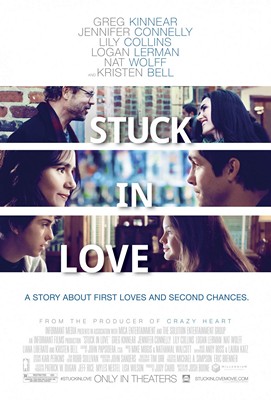The internet has found its newest punching bag with the Scooby Doo adjacent show, “Velma.” At just four episodes in, everyone seems to absolutely despise the show. It currently stands on IMDB with a score of 1.3 out of 10 — but why? Why does everyone hate this new HBO Max show? And, most importantly, is this hatred justified or is the internet just being … the internet?
Who is Velma for?

“Velma” is a take on the “Scooby Doo” franchise, produced by Charlie Grandy for HBO Max. It stars Mindy Kaling, executive producer and the voice of Velma Dinkley, along with Glenn Howerton as Fred Jones, Sam Richardson as Norville Rogers and Constance Wu as Daphne Blake. Before you say it — yes, the show so far is missing Scooby-Doo, the dog.
Most people that have been critical of the show have said that they’re confused about who it’s trying to appeal to. When the news of its production had first come out, there was a split reaction of excitement and disdain from the internet. The characters have been tweaked from their original counterparts, with changes being made to their race, their personalities and their backstories, among other things. Velma and Daphne are also represented as openly queer in the show. While, on the surface, these changes seem like they’re bringing about diversity and changing the narrative through these widely loved characters, the show seems to handle it … distastefully, at best.
The humor in the show feels forced, and the characters are quite unlikeable. Velma slowly becoming a somewhat better person throughout the show seems to be her current character arc, however, the show seems to almost endorse some of her behavior. All in all, it just makes for a highly unenjoyable watch.
Mindy Kaling’s Representation of South Asian Girls
Mindy Kaling, the show’s executive producer, is behind many of the prominent South Asian female characters on screens right now. From Devi in “Never Have I Ever,” Bela in “The Sex Lives of College Girls,” to now, Velma Dinkley — all these characters seem to have one thing in common. They are retired socially awkward losers who grew out of their South Asian traits to become socially relevant and acceptable. Or, they’re on their way to doing so.
Many people are accusing Mindy Kaling of projecting her own experiences with being South Asian onto the characters she plays or writes. They almost always have a dialogue about hating all the features that are traditionally seen in South Asian women. They also, almost always, have a very similar archetype of the nerdy white man as a love interest. While some of these characters have arcs that allow them to come to terms with their identity more, it still makes you question why this is a pattern in nearly all of her works. This even exists in shows where Mindy plays the character in question herself, like in “The Mindy Project.”
This clip from “Velma” is a prime example of why people have such strong criticisms of Mindy Kaling and the show itself.
“Dark” Adaptations of Children’s Media
The premise of Velma lies in the fact that our beloved characters from Scooby Doo are now dealing with more serious, adult and dark matters in this alternate universe. While mystery has always been at the franchise’s core, this show takes it to another level. In Velma, the characters are dealing with court cases, gritty murders and disappearances. They’re even dealing in substances as a plot point. The characters are almost all romantically involved with each other and deal with emotions that should, on paper, feel very real and allow audiences to connect with them. But, of course, they don’t. Instead, this adult adaptation of Velma just comes off as a gimmick.
This isn’t the first time we’ve seen something like this happen, with the best and most recent examples being the shows “Riverdale” and “Fate: The Winx Saga.” There’s something to be said about why these shows are just as equally disliked or generally criticized and mocked by the internet. Children’s media brings about nostalgia and a sense of innocence for those who grew up with it to go back to. Bringing in adult themes and changing the tone of the stories that should take audiences back to simpler times just tends to be off-putting. Maybe, in the future, this concept will be executed better. However, from what we’ve seen so far, the kids’ show to edgy adaptation pipeline just feels … old.
Tag us, @VALLEYmag on Instagram or Twitter, with your thoughts on the show!





